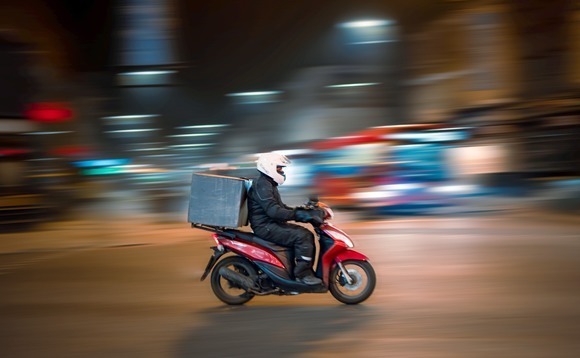
Deal focus: Affinity capitalizes on enforced divestment

Delivery Hero was instructed to offload Yogiyo as a condition of buying Woowa Brothers. Affinity, Permira, and GS Retail made the most of a $685 million opportunity to enter Korea’s food delivery space
For Delivery Hero, the cost of getting Woowa Brothers, the biggest meal ticket in Korea's food delivery industry, was giving up the second-biggest meal ticket – Yogiyo. In July 2020, the two platforms accounted for 97% of deliveries nationwide. The Korea Fair Trade Commission couldn't countenance having them exist under the same parent group.
Delivery Hero's enforced divestment of Yogiyo has been private equity's gain. A financial sponsor was always likely to be the next owner; the question was who.
The auction attracted close to a dozen participants, with Affinity Equity Partners winning out with a KRW800 billion ($685 million) bid. It then invited in two co-investors: Permira, which had dropped out earlier in the process but was keen for a piece of the deal; and local chaebol GS Group, which liked the business, but didn't want to bid on its own, according to a source close to the situation.
"This is a big deal because more money has to be put into the business. It's a growth-stage company and it's up against the likes of Coupang Eats, which is burning through a lot of cash," the source adds, noting that an additional several hundred billion won is expected to be invested in Yogiyo.
GS, which will take a 30% stake, also offers strategic benefits. One of its subsidiaries, GS Retail, generated KRW8.9 trillion in sales last year, mostly from convenience stores and supermarkets. Already home to Korea's leading home shopping channel, GS Retail is pushing into e-commerce and needs a partner to handle last-mile delivery for fast-turnaround orders. It gives Yogiyo an opportunity to expand beyond the food space.
On announcing its agreement to acquire Woowa in 2019, Delivery Hero estimated that gross merchandise value (GMV) for food services in Korea would reach EUR83 billion ($98.5 billion) by 2030. Include groceries and the figure rises to EUR275 billion.
In the first nine months of 2020, Woowa – the runaway market leader – generated GMV of EUR4.6 billion. Almost all that came from its marketplace business, which connects diners with restaurants and receives fees for advertising and commissions on orders. It has newer business lines focused on grocery delivery and supplying merchandise and processed foods to restaurants.
Delivery Hero was willing to pay $4 billion for Woowa partly because Korea represents fertile terrain for internet services companies. It has fast broadband, high mobile penetration, mature online banking channels, cultural homogeneity, and urban density. Half the population lives in the 10 largest cities, compared to 8% in the US. Seoul's density is 1.5x that of New York and it has nearly 5x as many restaurants per 100,000 residents.
Yogiyo is said to have an approximately 25% market share. The Affinity consortium believes the company has suffered from several years of underinvestment, despite rapid growth. It has identified several focus areas, such as improving IT systems and supporting infrastructure, and adding more delivery people. However, the biggest threat may come from its deep-pocketed rivals.
"There are a few guys in the market, but food delivery typically consolidates, and you end up with two players, and they are both profitable," the source observes. "Yogiyo could get consolidated or it could be the consolidator. Private equity investors are generally open-minded. They don't mind being consolidated if the price is right."
The Yogiyo investment comes a matter of weeks after Affinity agreed to sell another of its Korean portfolio companies, Hyundai Card. The GP acquired a 24% interest for KRW376.6 billion in 2017, facilitating an exit for General Electric (GE). Due to foreign investment restrictions that prevent a single party from owning more than 10%, Affinity took 10%, and invited GIC to come in for another 10% and AlpInvest Partners for 4%.
Similar challenges emerged on exit, which led to Fubon Bank and Fubon Life acquiring 10% apiece, while the remaining 4% went to a subsidiary of Hyundai Motor Group, GE's original joint venture partner. Hyundai Commercial claimed it paid KRW86.8 billion, implying a valuation of around KRW2.2 trillion for the entire business. Affinity's entry valuation was KRW1.57 trillion.
"The investors were pushing for an IPO more than a year ago, but COVID-19 upset those plans," the source says. "It would have been the end of next year at the earliest to go back, but who knows what will happen between now and then. Fubon showed up, they were serious, and the price was okay."
Latest News
Asian GPs slow implementation of ESG policies - survey
Asia-based private equity firms are assigning more dedicated resources to environment, social, and governance (ESG) programmes, but policy changes have slowed in the past 12 months, in part due to concerns raised internally and by LPs, according to a...
Singapore fintech start-up LXA gets $10m seed round
New Enterprise Associates (NEA) has led a USD 10m seed round for Singapore’s LXA, a financial technology start-up launched by a former Asia senior executive at The Blackstone Group.
India's InCred announces $60m round, claims unicorn status
Indian non-bank lender InCred Financial Services said it has received INR 5bn (USD 60m) at a valuation of at least USD 1bn from unnamed investors including “a global private equity fund.”
Insight leads $50m round for Australia's Roller
Insight Partners has led a USD 50m round for Australia’s Roller, a venue management software provider specializing in family fun parks.








